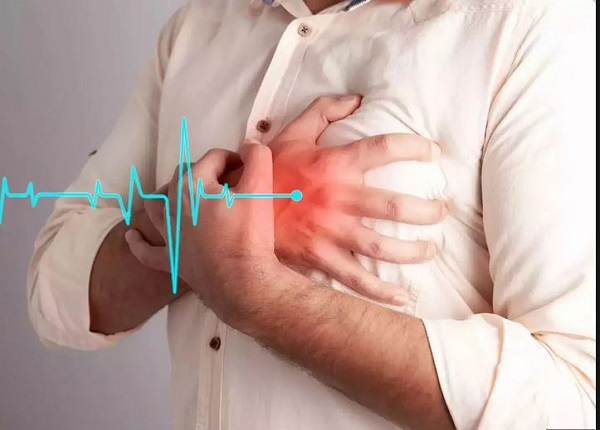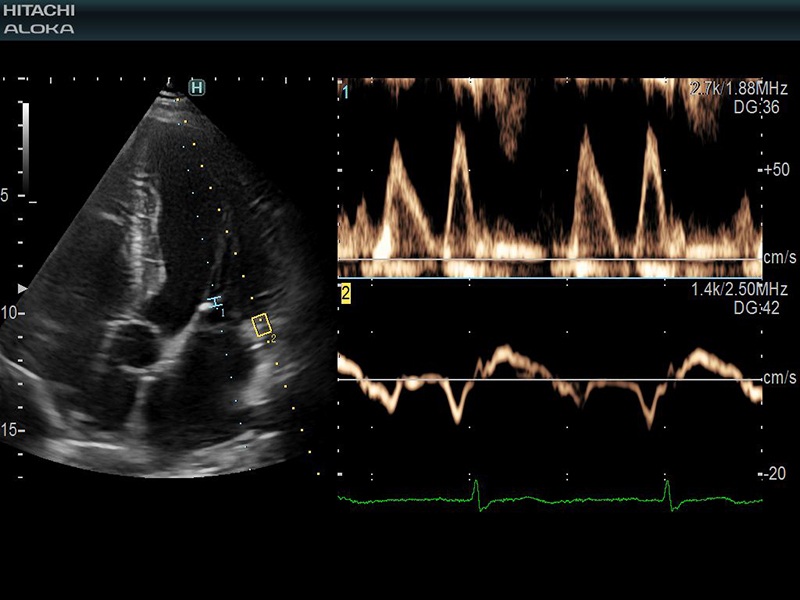Cardiovascular disease is a disorder of the heart and blood vessels that impairs the heart’s ability to function properly. It is often incurable and requires careful, sometimes lifelong, treatment and monitoring, which can be costly.
Therefore, early detection of this disease is extremely important. Below are the early signs of cardiovascular disease.
– Rapid heart rate, irregular pulse
This is one of the common symptoms caused by the heart beating faster to compensate for the possibility of weakening cardiac output. The condition may be due to arrhythmia caused by irregular heartbeat – too fast or too slow. This disease is becoming more and more common and younger in the community. Arrhythmia can cause mild discomfort for the patient, but it can also be a manifestation of a serious medical condition.
– Shortness of breath
People with heart disease often experience symptoms of shortness of breath even when not working hard or when exerting themselves. This shortness of breath occurs when you lie down or go to sleep, often increasing at night. However, shortness of breath can also be due to lung causes such as asthma, and even so, when shortness of breath occurs, it needs to be diagnosed and intervened early.
– Feeling of heaviness in the chest, chest pain
This is a common symptom of heart disease, but also appears in other diseases such as respiratory and neurological diseases.
– Frequent fatigue, exhaustion
People with heart disease are often tired all the time and have difficulty with most daily activities. The cause is that the heart cannot pump enough blood to meet the needs of the organs in the body. Therefore, fatigue and exhaustion can be caused by common factors such as colds or flu or by cardiovascular disease that requires medical examination.
– Persistent cough, wheezing
The heart cannot pump enough blood to supply the body, causing blood to stagnate. Fluid retention in the lungs for a long time causes chronic cough and wheezing.

People with heart disease often experience shortness of breath with or without exertion.
– Edema
This symptom due to heart failure often appears in the afternoon, when the patient stands for a long time and will decrease when lying down to rest or in the early morning when the patient just wakes up. When heart failure is more severe, edema will be more obvious, more edema, sometimes edema all over the body and appear all day long, not decreasing if not treated.
– Dizziness, fainting
When the patient has arrhythmia, conduction disorder, blood to the brain is interrupted or when blood pressure changes abnormally during exertion, it can cause symptoms of fainting, dizziness, dementia.
In addition to the above symptoms, there are many cases with other symptoms such as: Anorexia, nausea or nocturia. Patients with heart failure have less blood in the digestive system or blood accumulates in the liver, causing anorexia, indigestion, digestive disorders and nausea. Patients with heart failure will urinate frequently at night due to the displacement of accumulated water in the body causing edema in many parts to the kidneys through the blood vessels.
Diagnosis of vascular disease
When the above symptoms appear, the doctor will examine and suspect that additional tests will be ordered to confirm the diagnosis. The usual indications are physical examination, blood tests, and X-rays.

When there are signs of suspected heart disease, doctors will order an echocardiogram to confirm the diagnosis.
In addition, some tests to diagnose cardiovascular disease include:
- Magnetic resonance imaging (MRI).
- Electrocardiogram (ECG)
- Holter monitor.
- Echocardiogram – Doppler.
- Computed tomography (CT scan).
In addition, doctors will assess cardiovascular risk factors based on family medical history; risk factors such as smoking, diabetes, obesity, stress, etc.;
Effective prevention of cardiovascular disease
Heart disease due to malformations cannot be prevented, but with other types of cardiovascular disease, preventing risk factors is completely possible, specifically:
- Need to monitor and control blood cholesterol levels well.
- Control blood pressure, diabetes.
- Do not smoke, drink alcohol, or use harmful stimulants.
- A healthy diet is good for health.
- Keep your weight stable, avoid obesity.
- Exercise regularly.
- Get enough sleep, avoid stress.
- Get regular health check-ups to detect and screen for diseases as early as possible.
In short, heart disease is one of the most dangerous diseases, with extremely complex developments and is a leading cause of death and a burden on the health sector. Therefore, when there are suspicious signs, the patient needs to go to a medical facility for timely examination and treatment.





